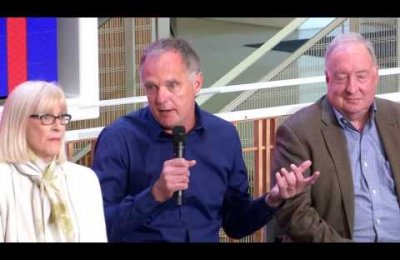The Huffington Post recently ran two columns by USC Annenberg Professor and Center on Public Diplomacy Director Philip Seib.
On Feb. 25, Seib’s column stressed the importance of water diplomacy, arguing that natural forces, such as droughts, can make people more susceptible to hearing out terrorist groups, paving the way for political upheaval.
Seib gave the example of a recent drought in Northern Africa. The prosperity of the area is dwindling and terrorist groups such as Al Qaeda are becoming increasingly alluring with promises “that unleashing angry frustration will make things better.”
Though Americans are “accustomed to leaving their faucets running and overwatering their lawns,” Seib acknowledged that the United States is also slowly beginning to “recognize the fragility of the water supply” and take the issue of water management more seriously.
Seib argued that people will begin listening to extremist groups more if they feel as though their government is not doing their job to ensure basic necessities, such as water.
“This is more than a matter of doing the right thing; it will affect global security,” said Seib.
On March 3, another column by Seib addressed the Washington Post’s recent decision to remove the ombudsman position from their staff.
The job of the ombudsman, which has existed for the past 43 years, was to critique the work done by the newspaper, answer reader questions, and write a weekly column. The ombudsman’s contract also guaranteed editorial independence.
In place of the ombudsman, a “reader representative” will be hired to address reader concerns and to write for the Post’s website or newspaper on occasion.
Seib, whose father worked as the Post’s ombudsman from 1974 until 1979, criticized this decision on the basis that having a reader representative rather than an ombudsman means removing the employee's “freedom to criticize.”
According to Seib, having an ombudsman served as “evidence that a news organization [could] police itself and keep itself accountable to the public it serves.”





